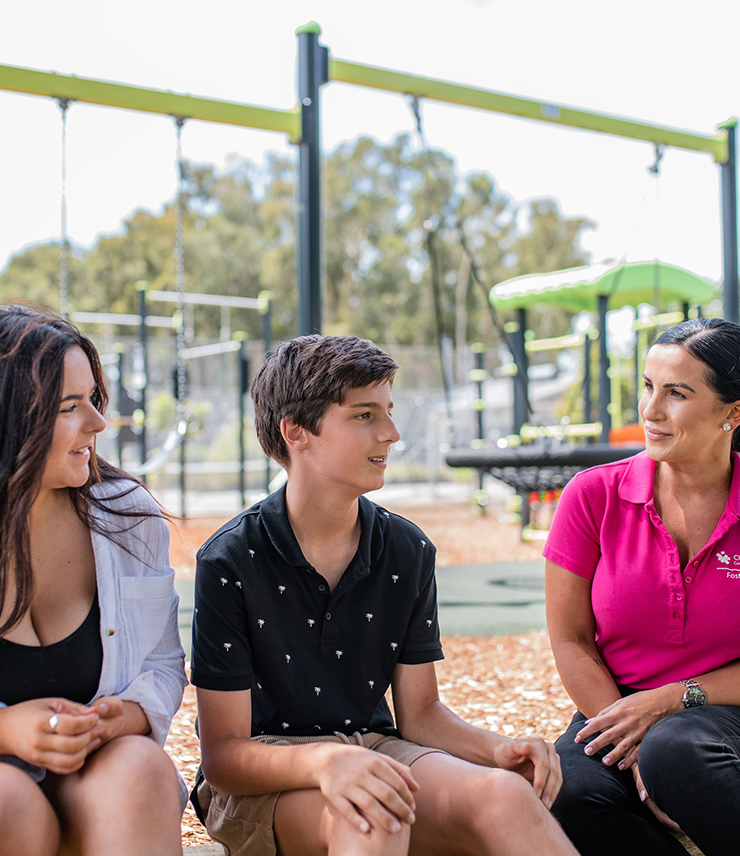About Foster Care
What is foster care?
When children and young people are unable to live with their own families, foster care is required. While the children on young person biological parents get help to change, foster carers support these families by caring for children.
Foster carers take on the responsibilities of a parent to provide a safe, nurturing and secure family environment for children and young people in need of care. This may be on a short-term basis, or a more permanent relationship. View this different types of care below.
The Department of Communities and Justice can provide more information about foster care from a government level.
Government reform
More children in NSW now have a chance for a stable home for life where they can thrive, under Government reform introduced in October 2017 and the introduction of the Permanency Support Program.
Government reforms in NSW have changed the landscape of out-of-home care. These reforms mean it’s now more possible for people to provide a stable forever home for children and young people in need through permanent foster care arrangements or adoption.
If a child or young person is found to be at risk, they are removed from danger and placed with a foster carer. The priority then is still to return the child or young person to their family of origin, provided it is safe to do so. This hasn’t changed.
What has changed is that if it’s not safe for a child or young person to return to their family of origin within 2 years, the focus will become to find the child or young person a stable and loving forever family.
How does the foster placement process work?
The NSW Family and Community Services of Family and Community Services (Community Services) are responsible for intervening in child protection matters.
When a child or young person is in need of care and protection through foster care, Challenge receives a referral for the placement of a child or young person where there is availability of carers and these carers are suited to the requirements of the child entering care.
Once the referral is received, Challenge will complete a comprehensive placement assessment. You will be provided information in relation to the immediate needs of the child or young person. You will also have the opportunity to discuss any issues that may arise for you and your household before you accept the placement.
In some circumstances, children and young people will require Immediate Placement and little information will be available at time of placement in these instances. Once a child or young person is placed with you, the Challenge Caseworker will provide ongoing support to you and the child or young person in your care.
Challenge Community Services carefully matches children and young people with foster carers. Carefully matching placements, along with the training and support our foster carers receive from us, ensures the placement has the best chance of stability.
Types of foster care
There are many ways to make a difference to a child or young person’s life. You may be ready to commit to full time care, or you can offer care on a part-time basis.
Providing long-term care
Research has found that children do better when they have continuity and stability. There are several ways you can provide this.
Guardianship
The court grants you guardianship for a child or young person you already know (such as a family member or significant other). You will be responsible for making parental decisions relating to that child or young person without the assistance of a foster care agency.
Foster to adopt
An individual, couple, or family adopts a child or young person who is in their care. As the adoptive parents, you will have the legal rights and responsibility of that child or young person while supporting them to stay connected with their birth family.
Long-term care
A child or young person remains part of your family with ongoing support from Challenge Community Services.
Intensive Therapeutic Care (ITC) step-down care
You care for a child or young person when they are transitioning from an ITC service into a foster placement. ITC is a government-funded program that helps children and young people recover from trauma.
Stepping in for the short-term
If you feel you’re not able to provide permanent care, there are other ways you can make a difference to a child or young person’s life.
Respite care
You provide regular time-limited care to a child or young person, such as on weekends or during school holidays.
Crisis care
A child or young person is placed with you within hours of being referred to Challenge Community Services.
Short-term care and restoration
A child or young person is placed with you for a short period. This can be anywhere from several months to two years. The child or young person may be restored to their family, transitioned into guardianship care, adopted, or transitioned to a long-term foster care arrangement.



